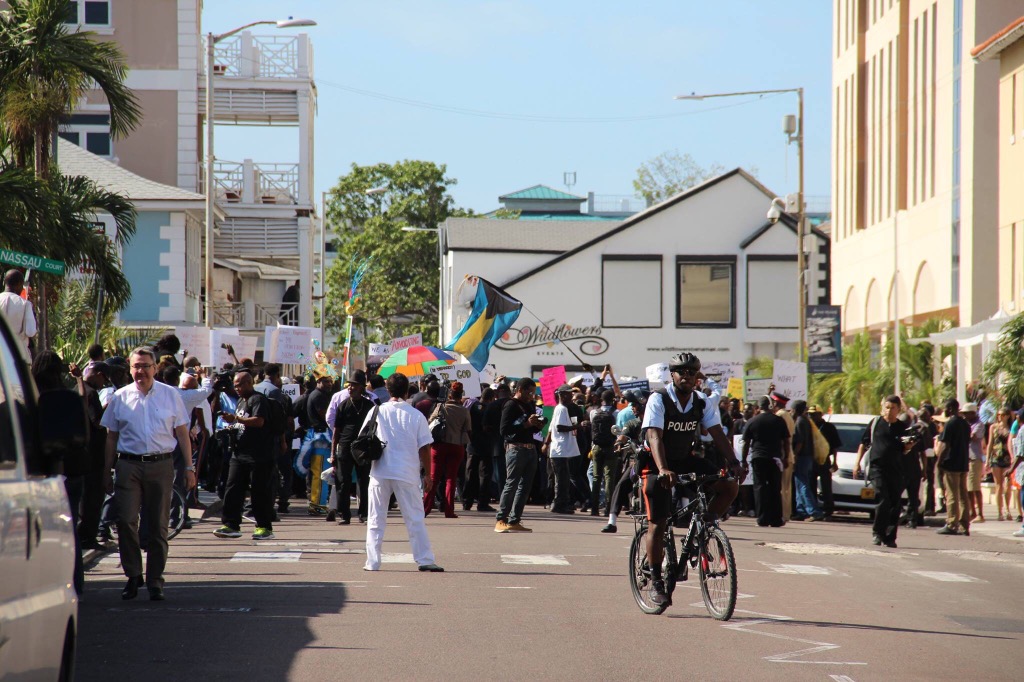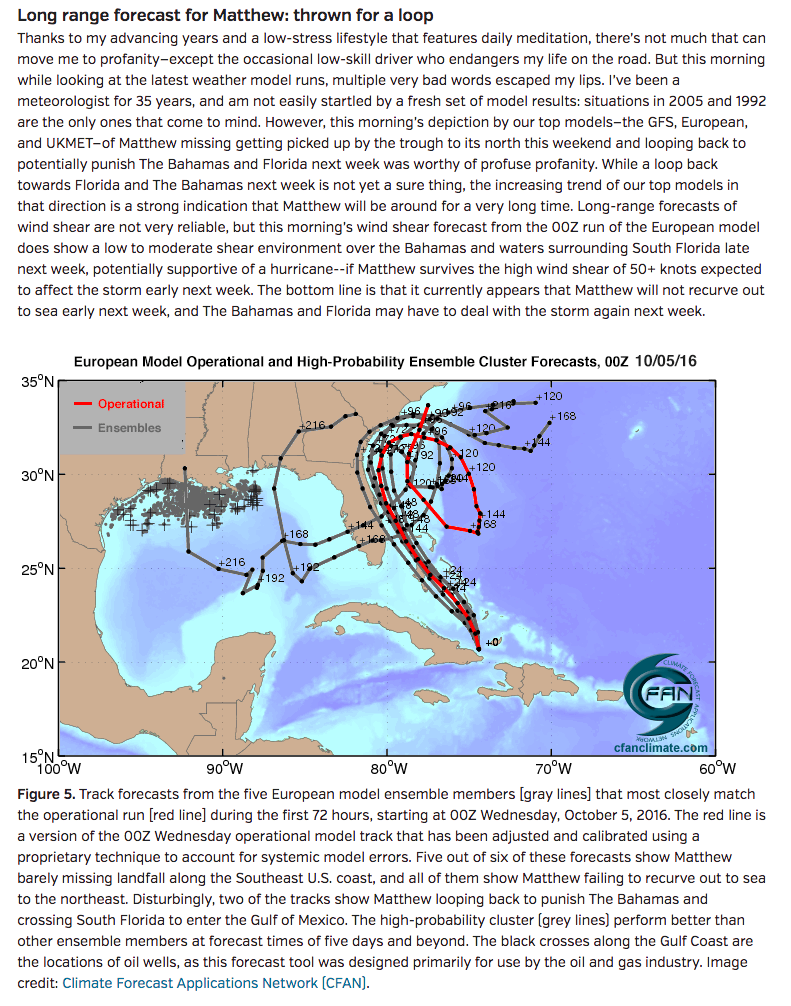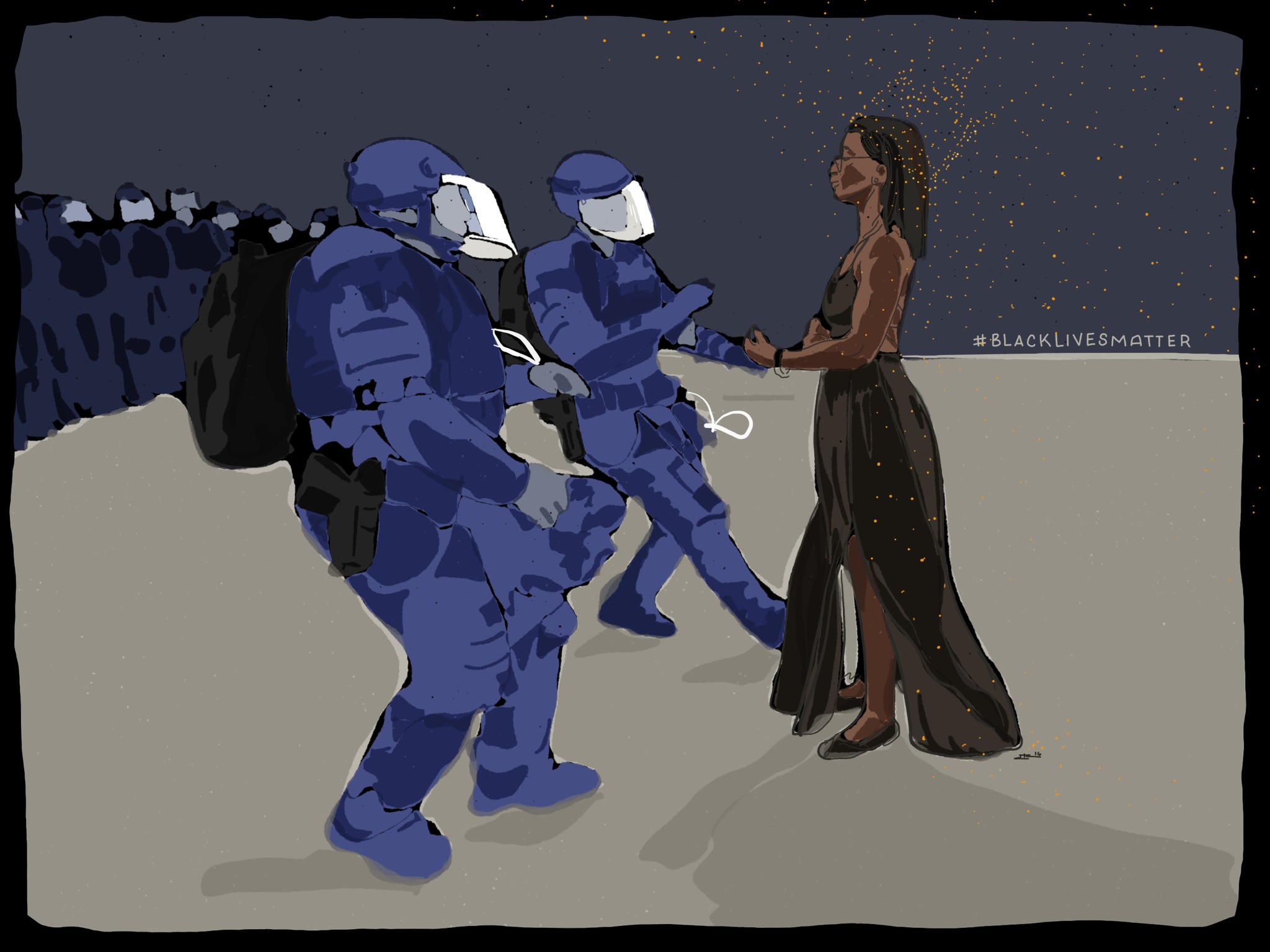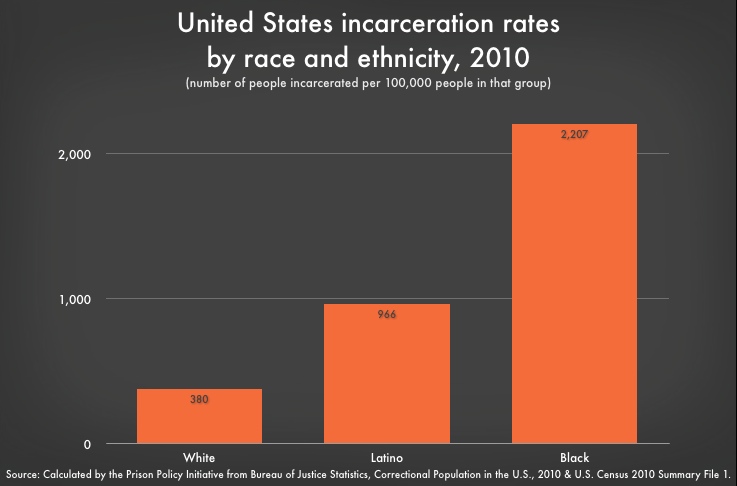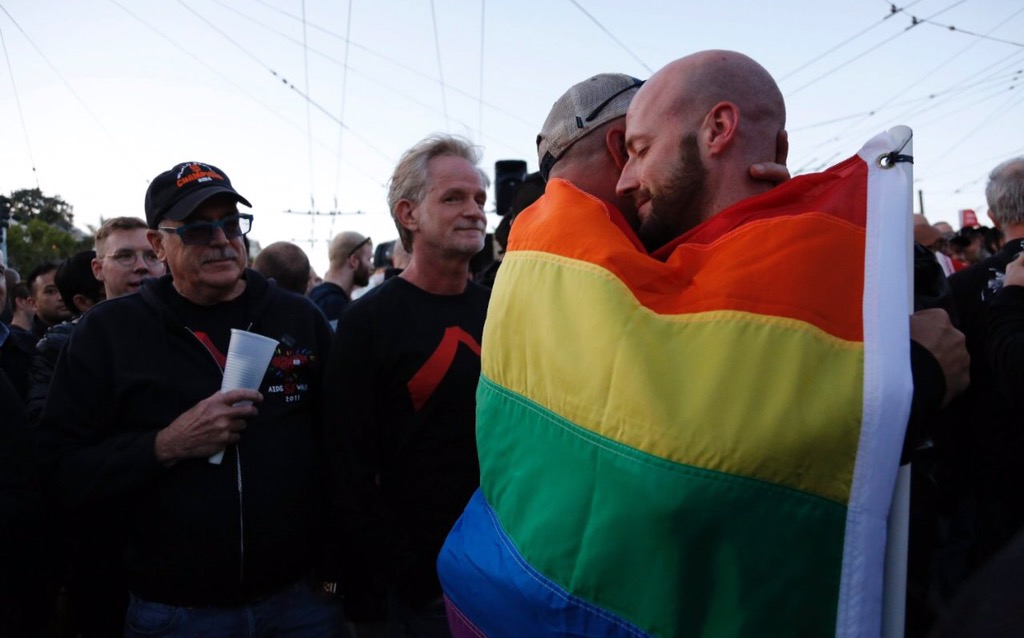I'm writing this in the cool breeze and dark room of a home in an area which not only has yet to see electricity restored, but even to see any presence of our Power and Light company for blocks around.* Hurricane Matthew blew past us two weeks ago, and we have yet to return to normalcy. I am a citizen, and a patriot, and I am ashamed of the way in which our government has responded to this disaster.
Let me point to the areas of greatest failure.
- Bahamas Power and Light
I have already criticized this company roundly on social media. Let me be very clear: my criticism does not stem from my personal situation. After the last major hurricanes to affect electricity services in the capital, we invested in the sort of generator that could withstand this kind of power loss -- a workhorse of an engine. Rather, my criticism stems from the fact that the result of BPL's ineptitude in the wake of this storm has compounded rather than alleviated the suffering and trauma experienced by the residents of the Bahamas' capital city, and it did not have to be that way.BPL has worked hard to earn my criticism. I will give props to the company for restoring power to the hospitals, the security agencies, and Paradise Island the day after the hurricane. That part of their strategy made sense, considering that Atlantis was being used by many as a hurricane shelter and a home away from home. But that is where my commendation stops.Thereafter, BPL's response to the hurricane was wrong-footed, revealing that the new managers were clearly out of their depth. In the first instance, the company was wrong to reject hurricane protocols established by its parent company, BEC. This decision left residents of Nassau perplexed and rattled, as we did not see the company mobilize and jump into action until after our first weekend in darkness. Rather than beginning as soon as the storm had passed, it seemed, BPL was wasting time "assessing" the extent of the damage. No doubt it was working feverishly to repair its own plants. But this was accomplished in utter silence, in the absence of any real communication to the customers it served and on whose money -- from our taxes and from our pockets -- it depends for its own survival.In the second instance, the communications in which it engaged after this sluggish first response were not only inadequate, but downright insulting. The tenor of the communications came off as defensive and self-serving, with frequent references to the "unprecedented" nature of this storm and the lack of adequate resources to address the state of emergency.This was insulting because while Hurricane Matthew is widely claimed to have been the strongest storm to directly hit Nassau since 1929, the reality is that the situation is more a matter of degree rather than of quality. In my adult memory, I can count eight storms which have affected New Providence substantially, six of them this century. Further, as we should all be well aware, a decade ago two of those storms devastated Grand Bahama and wiped out its power generation ability altogether, requiring the replacement of all the utility poles from Freeport to West End in 2004-5. Our legacy power company, BEC, has extensive experience in dealing with hurricane recovery within and outside of Nassau and has learned how to do it well. BPL's insistence that the impact of Matthew was somehow extraordinary rang false, and had the effect of discounting everything Bahamians have learned about the restoration of power after major storms.So while I am perfectly willing to agree that Matthew may have affected our power generation plants more than any other in recent times, and that it may have left a different kind of destruction behind, I cannot accept that BEC lacked the experience or the strategies that would allow the capital to be functional more quickly and in a more reasonable amount of time. The fact that the majority of the island of New Providence remained without light until the Sunday after the storm spoke more to the inexperience and hard-headedness of the new management team than to the magnitude of the storm. After all, Matthew sideswiped New Providence as a Category 3 storm, and the eye passed us by. The continual references to its "unprecedented" nature sounded like excuses for ineptitude.Let me support this point with some more comprehensive detail. These are the other significant storms we have weathered in New Providence in the past quarter century: Hurricane Andrew (Cat 5) (1992), Hurricane Floyd (Cat 3-4) (1999), Hurricane Michelle (Cat 1) (2001), Hurricanes Frances (Cat 4) and Jeanne (Cat 3) (2004), Hurricane Irene (Cat 3) (2011), and Hurricane Sandy (Cat 1) (2012). For Bahamians, and for Nassauvians, although the eye of a hurricane has not come this close to us for some fifteen years -- not since Hurricane Michelle, whose eye stayed over the capital for some hours -- the statement that the strike was "unprecedented" has the effect of dismissing our collective experience as irrelevant, unworthy of recognition.Let me be clear on another point, too. Lest people misunderstand what I expect from our power company and imagine that I am judging the response of BPL to the storm solely by the restoration of power to the capital, let me assure you that I am not talking about full restoration of services here. Hurricanes bring devastation, and I do not expect miracles. I do, however, expect rationality in the wake of a storm; I expect our power company to understand the way New Providence works, and to make decisions that minimize suffering and confusion rather than ones that exacerbate that suffering.I am talking about commitment, confidence, and communication. After those other hurricanes that disrupted the capital's electricity -- primarily Andrew, Floyd, Michelle, Frances and Jeanne -- residents of New Providence were given comprehensive reports of the damage to the electrical grid, a general understanding of the scope of the repairs to be undertaken, and then regular updates about the progress of those repairs. We have come to expect this kind of respect, and we have missed it sorely this time. It is the kind of communication that allows us to understand that while it might take weeks to restore full electricity to the whole island, two weeks after those storms, the capital will function again. Schools without significant damage will re-open. Businesses will return to some level of normalcy. Traffic will move without snarls at traffic lights and many communities will have their power restored.Additionally, in those past storms, after two weeks, we all knew our electricity corporation was working for us. Crews had been visible throughout the island from the moment the storm had passed, at times even before the all-clear was given. It was understood that the restoration of electricity to as many people as possible was of the highest priority. We understood that BEC recognized that the swift resumption of power generation was critical to the recovery of the economy and of the island, and public confidence was boosted by the corporation's clear communication and a sense of commitment to the quickest restoration in the shortest possible time.I cannot say that I have confidence in any of the above this year. On the contrary: BPL has succeeded in convincing me that its primary interest lies in conserving its bottom line, in protecting whatever revenues it expected to earn from this management contract, rather than in restoring power to the people it serves in the shortest possible time. It may well have worked to restore power in the shortest cost-effective possible time, but that is not the same thing at all, and it inspires little confidence in me that I matter to BPL in any way other than the payment of my electricity bill.I resent this deeply. Unlike money which was paid to BEC in the past, this insistence on cost-effectiveness is not, and cannot be, merely to ensure efficiency. It must also be to repatriate some of the revenues earned from Bahamian pockets to the USA, where the parent company of the new management resides. Otherwise what would be the point of accepting the management contract?There may be people who will argue with me, who will take the stand that even in an emergency, money matters more than people. For the sake of neo-liberal argument, I'll give them that point, although every atom in my body screams that it is wrong. Even so, if cost effectiveness is your primary motivation, I expect a level of fiscal efficiency. If your goal is cost-effectiveness, at least achieve it with the minimal possible disruption to normal life. Even here BPL's miscalculation has been great. Its slowness and muddled strategy of restoration has resulted in the following impacts on life in the capital:
- the slow restoration of internet and cable communication, which is dependent in many cases on the restoration of electricity
- the inability of public schools to reopen as scheduled owing the continued lack of power to their surrounding communities, a direct result of the company's decision to leave the northeastern and southern segments of New Providence to the last
- the protracted power outage at the Port of Nassau, the core of New Providence's economic activity
- the continued inability of a considerable proportion of the business community to function at full capacity, as much of the economy of New Providence is still centred in and around the city of Nassau in the neglected north-eastern segment of the island, and also as a result of their remaining without cable and internet
- traffic chaos owing to the scores of traffic lights that remain non-functional in the wake of the hurricane
Even as I write this, these are the traffic lights that impact me personally that remain non-functional, two weeks in: Village and Bay, Village and Shirley, Shirley and Mackey, Mackey and Bay, Mackey and Pyfrom (Bar 20), Mackey and Madeira, Parkgate and Village. The lights at Madeira and Montrose, Madeira and Mount Royal, Madeira (Fifth Terrace) and Collins, Rosetta and Sears, Rosetta and Hawkins, Rosetta (Fourth Terrace) and Collins, Mackey and Wulff, Collins and Wulff, East and Wulff, Market and Wulff, Nassau and Meadow/Boyd, Elizabeth and Shirley, Blue Hill and Cumberland, Blue Hill and Dillet. These are not insignificant junctions. No doubt there are scores of others. These are not rural outposts, and they are not areas that can go without traffic signals for long. But they are testimonies to the way in which BPL's approach to this storm was woefully and tragically off the mark.What is more, it appears as though, contrary to a more established practice of tackling the most difficult jobs first, BPL has left them to the last. This means that the people who were most impacted by the storm itself -- who suffered the flooding from the storm surge, who lost cars and roofs to falling trees, who lost their vehicles and their furniture and in some cases the stability of their homes -- are also those people who remain the most neglected two weeks after the storm. This has the effect of compounding their trauma and of increasing, rather than alleviating, their suffering. I am not suggesting that the damage to the electrical system that occurred in those areas should, or could, be fixed immediately. But I am saying that there is some comfort to be had simply from knowing that one's area is a priority for officials, from knowing that you are on someone's list, that you are not being forgotten. And that is what has sorely been lacking in this post-Matthew time.In short, BPL's recovery plan has appeared ad hoc, foreign, and woefully unsuited to the realities of life on New Providence. I can only conclude that what has happened at BPL -- as BEC delivered a far better service after hurricanes, even if it did not deliver much in the way of service day-to-day -- is that the new managers have come in with their own way of doing things, and disregarded protocols that have been in place for decades. (I am only speculating here, and my speculation is fuelled both by rumour and by a deep bias against the outsourcing of any essential utility to an external company, so take this part of my criticism with the appropriate dose of salt.) I suspect, however, that the new managers discounted the institutional and local knowledge that allowed BEC to function to this point, given the decrepitude of the plant and the chronic misallocation of funds it has suffered for decades. I suspect that the new managers instituted their own post-hurricane protocols instead of considering the value of those that have been tried and true -- to their detriment. There were babies in that bathwater, as we have all found out.There is very little in the way of mitigation that can be had at this stage, but there are some things that can be done.One of the areas that stands out most glaringly about BPL's non-handling of this crisis is its persistent refusal, apparently, to offer any rebates to its customers in this difficult time. Not only have the press conferences that I have heard mentioned cost at every turn, BPL -- unlike every other public utility company in the nation -- has insisted clearly that they will continue to bill their customers for their services and that they will continue to disconnect those customers for non-payment of their bills.Come again? Is BPL the only agency in this country to emerge without loss in the wake of this hurricane? Is the right to repatriate profits more important than the ability of Bahamian citizens to recover from the storm? Is BPL oblivious to the ways in which it has compounded the suffering and slowed our recovery? Are we expected to pay for this massive failure?Words massively fail me here. The only thing I can do is to call upon the bosses of BPL, the politicians we have elected to manage our nation, to demand that some other arrangements be made, to demand that BPL recognize its contribution to our suffering and to at least consider offering reduced bills to those who have been without power for longer than seven days. Something concrete, something tangible, must be exchanged for the frustration, confusion and inefficiency that we have experienced from BPL over the past two weeks.What I would also like to see now is some humility in the wake of this disaster. At the very least, I would like to see the new managers learn something from this experience.They should learn something about the Bahamian people -- that we expect better than they have given us after this hurricane. They should learn something about the expertise that they met in the corporation that they were contracted to manage -- that perhaps local expertise is worth listening to, worth making room for, worth promoting. They should learn something about going into another country armed with the assumption that they way that they do things elsewhere may not be the best way, may not even work if transplanted. And they should learn something about basic communication. The provision of electricity should be divorced from spin. Tell the truth, tell it fairly, and gain the confidence of your consumers. Try to confuse us with numbers and percentages and mumbo-jumbo of the American kind, and worse, charge us for it, can only yuck up our vexation (Eng. translation: raise our ire).That is all.------
*Edit: the very night I wrote this post, the trucks came. They appeared in the neighbourhood by threes. One car, three trucks. 14 days after the hurricane. But the restoration of power was not as easy as that. By the time this publishes, it may have been achieved, but for now: we're still in darkness. [Back]





